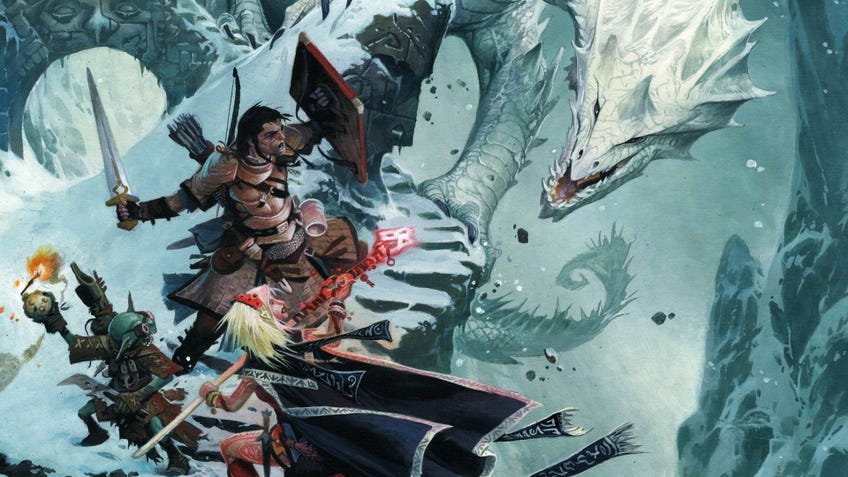Pathfinder maker’s Open RPG Creative Licence enters final draft and feedback period
This is your last chance to submit corrections and comments before the licence heads to the US Library of Congress.
Tabletop RPG publisher Paizo recently released the third version of its Open RPG Creative (ORC) Licence and asked for a final round of community feedback before the document is made immutable. The licence is a legal response to designer and player outcry over Wizards of the Coast’s disastrous handling of its own Open Gaming Licence (OGL) earlier this year and garnered support from dozens of other RPG publishers.
The ORC License’s third draft can be read in full on the Pathfinder and Starfinder creator’s website, which includes both a clean version and a ‘redlined’ one denoting what has changed from version two. You can also read through a comprehensive Answers and Explanations (cutely abbreviated as AxE) document that attempts to explain in plain language Paizo’s goals and intent, along with addressing specific or narrow use-case questions.
“The ORC License provides a way for game creators to openly share the mechanics of their game and allows for downstream users to freely use, modify, and reshare adaptations of these game mechanics,” the AxE document reads.
With the ORC Licence, a creator can freely share RPG components such as rules, attributes, systems, stat blocks and related pieces of a game engine to anyone who adequately attributes this borrowing inside their own work. Further, by creating within the ORC Licence, their work is automatically shared into the pool of adaptations and translations. What isn’t shared is lore, story elements, trademarks, visual art and distinct characters. These elements can be added to the ORC Licence only where a creator explicitly says so.
Paizo has developed their licence over the past several months by soliciting feedback via a Discord server where community members can discuss the language and structure of the document. There will be one more period extending through the end of this week, according to the publisher, before the ORC Licence is registered to the US Library of Congress, effectively barring any further changes and amendments.
While Wizards of the Coast eventually released their OGL 5.1 into the Creative Commons, Paizo chose another path to preserve a specific creative vision. According to the AxE, the CC-BY “share-alike provision requires the downstream community to share their entire work, without the ability to designate any Reserved Material retained by the original publisher.”
In contrast, the ORC Licence “grants users a licence to the copyright protection that exists in this complex form of intellectual property without publishers having to hire lawyers to separate that which is copyright protected from that which isn’t,” the AxE continues. “The whole point of the ORC is to give the gaming community comfort, confidence, and certainty. It gives our community a licence that is not reliant on any one company.”
Azora Law Firm, a US company, will register the ORC License, and the document will remain freely available to read on their website. Because Paizo will not claim any ownership over the licence, the publisher hopes the collective tabletop community will adopt a decentralised enforcement. It's own efforts to move beyond Dungeons & Dragon's legacy will continue in the Pathfinder 2E Remaster Project, which recently booted Drow from its official canon.
Paizo expects copyright registration to take about six months, but creators and publishers will be able to access a Final Interim ORC Licence on Azora Law’s website and Paizo’s official website as early as next week, which will be fully ready to include in any published material.

